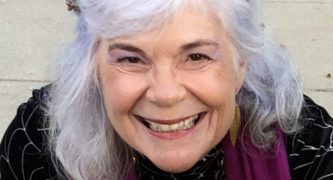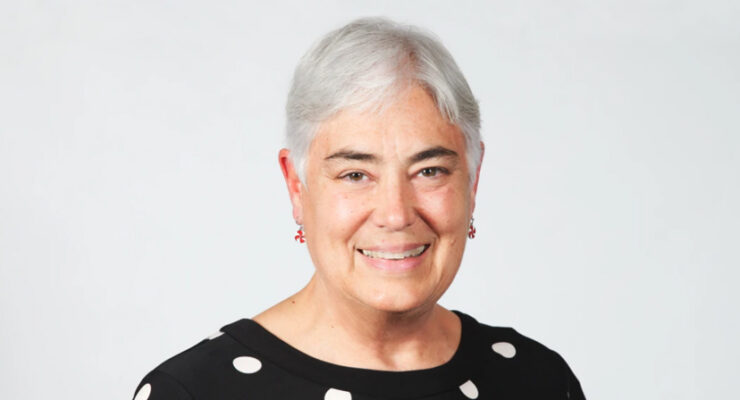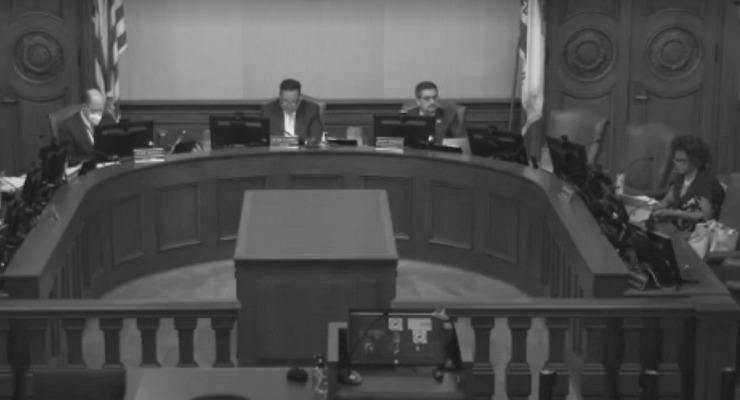
In some dramatic ways, local author Diana Peterson-More says the pandemic has affected workplace communication, a critical skill everyone needs to better understand, especially in the Digital Age
President and CEO of the Organizational Effectiveness Group, Peterson-More will tell a virtual audience much more on this important topic when she joins the Pasadena Public Library on Thursday, Jan. 28 to discuss her book, “Consequential Communication in Turbulent Times: A Practical Guide to Leadership.”
The book focuses on the need to clearly communicate one’s intentions, and ensuring that he or she is understood. According to Peterson-More, it is essential to continue to practice at improving our communication skills, creating a functioning organization, and honing leadership abilities within a team. This is especially true due to the involvement of multiple generations of women and men in the nation’s workforce.
“We have multiple generations in the workplace and the different generations communicate differently,” Peterson-More explained. “The platinum rule is to figure out the way they like to be communicated with and communicate with them that way.”
In an interview with Pasadena Now, Peterson-More talked about her new book, published in February 2019, and the influences that inspired it.
“When I wrote the book, I was really thinking a lot about the political consciousness in our country, but also throughout the world,” Peterson-More explained. “We could take global warming … because people have had to migrate, but then, there was the pandemic last year. And, once again, we live in uncertain times. We live in turbulent times where people are not able to rely upon what happened before and we are creating a new normal. And so a lot of folks are scared.”
Perhaps more than other world-changing events, the COVID-19 pandemic has changed the way people of all ages communicate with one another, especially in the workplace, she said.
“A couple of things have gone on in the workforce,” Peterson-More pointed out. “One, people are living longer, so we have multiple generations in the workplace and the different generations communicate differently. I see it within my own little family. but also a lot of work is now being done virtually. … It can be very difficult for people to focus when they’re looking at a screen… There’s a really funny ad on right now, where they show a picture of 20 people on Zoom or another virtual product and they’re blowing their noses. They’re eating, they’re looking down at their cell phone and answering text messages. And that tends to happen and people are not necessarily equipped.”
Peterson-More recommends some common sense rules to counter these types of lapses in paying attention to others and communicating effectively.
“Things like picking a place where there is no outside noise. Pick a place where there isn’t light blinding you from an exterior window. Just things that I’ve observed and experienced myself. So that has certainly changed. On the other hand, people tend to be putting in more time when they’re working from home virtually because there’s no chit chat by the water cooler and taking breaks, not to mention just the commute.”
There are pluses and minuses to all the changes, she said, “But it has changed. And, there’s a small percentage of the population that embraces change. I happened to be one of them, but the vast majority of people don’t. They’re much more comfortable in their so-called comfort zone, kind of doing things the way they’ve always done them. And that’s upwards of 80 something percent. It’s very challenging for people.”
Despite the many challenges and downsides the pandemic presents to the typical worker and workplace, it has had some silver linings, Peterson-More said.
For one, “I think that I’ve reconnected with people who I’ve known and thought about, but hadn’t talked to in a long time, virtually, of course,” she said. Plus, “I really have strengthened the little pod of my family, and I’m fortunate because I have three children, two of whom live in the area and the third one happens to live in Italy, so that makes it a little bit more difficult, although we do Zoom. I really hope that we’re all respecting first responders and have a new regard for teachers. So to me, there’s been silver linings as well, kind of time to stop and think and contemplate and really reassess what’s important.”
The question is, how does utilizing clear communication ability translate into leadership skills?
“I think that leadership starts at the top and it cascades down. And, unfortunately, whether it’s politically or in organization leaders, they don’t always communicate as clearly as they think they are and very infrequently they are challenged,” she said.
The book, she said, includes observations, rules and frameworks that she’s developed over the years. One is listening, asking and telling. “We do not listen enough,” she said. “I think when leaders listen and they ask questions, they learn something, they create a sense of team, and involvement. It’s very motivational.”
Another rule is what she calls “The Platinum Rule, in which the speaker figures out the way a person likes to be communicated with and communicates with them that way.
But what if a person is not a manager but a worker having difficulty communicating?
“I’m a big one for asking questions. There’s no stupid question,” Peterson-More said.
“I operate from the standpoint that when I’m communicating, it’s not your job to understand me. It’s my job to make sure I am understood. I really appreciate questions, because that means to me that I was not clear in my communication. So I would say that if you’re a participant, participate, raise your hand, ask questions. There’s also some mechanisms that I’m thinking of Zoom, because that seems to be ubiquitous. And it’s certainly what I use. There’s also a chatbox, so you can ask questions and you can ask them to everyone or you can ask them to individuals.That’s a nice feature as well.”
In the end, everyone would benefit from listening more, she said. And, just as everyone would also do better by saying less, “All of us make mistakes,” Peterson-More said.
“It’s not if we make mistakes. It’s how we handle them,” she said. “If you make a mistake, apologize and move forward. So I would leave the public with that.”
For more on Peterson-More and her book, visit https://dianapetersonmore.com/














 0 comments
0 comments


